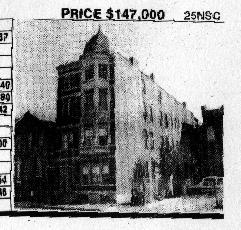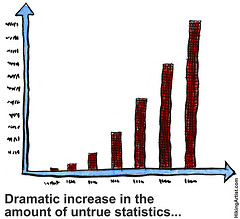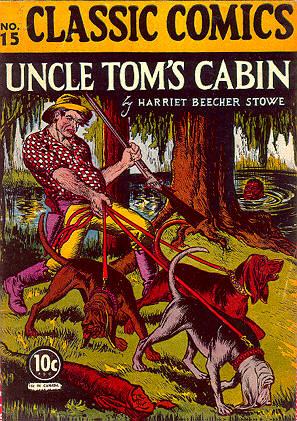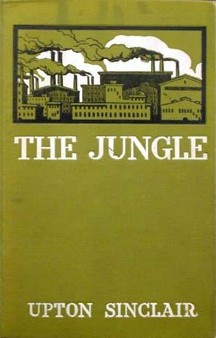Our spring term schedule features two introductory courses and two advanced courses, walking tour, bicycle tour, movies, book discussions, and presentations on relevant public issues. Sure, you’ll need to figure “your” income tax, but take some time to learn how the economy works and how it could work better for everyone. Classes are here, and the rest is gradually getting posted here. Want a printed copy? No problem, just email us or phone 312 450 2906.
Thoughtful college students can earn an easy $25 at our focus group
Ask your college student to click here.
Another way to explain how we’re being robbed

For a time, HGS instructor George Menninger did a presentation entitled something like “How I Made $1,000,000 in Chicago Real Estate: I $tole it from You!” George explained that he gained, actually, over a million dollars, simply by buying and holding an old apartment building in a gentrifying neighborhood. Over the years, rents on the apartments paid the mortgage and operating expenses, and after a time he sold the property for a seven-figure price. He explained, in the presentation, that the money he gained really came from the community.
These facts are clear but perhaps a little dry. That’s why we drafted an interview version, where a naive member of the HGS staff would ask George questions, and his response would provide the explanation. George wasn’t enthused about this and moved on to other projects, but a draft script (pdf) remains. Perhaps someone will find it of interest.
Note there are references in the script to “chart” and “pie,” these being standard components of the Progress & Poverty course explaining factors of production and avenues of distribution, respectively. There’s also a reference to “savannah,” which would be linked to here.
One Hour Henry George highlights our winter program

Our Winter 2015 course and event schedule has been issued, and is being posted bit by bit to this site (see the “events” tab above, or for the complete schedule in hardcopy phone 312 450 2906). Progress & Poverty courses will start January 6 and 8, and again on February 13. There is also an advanced course, After the Crash, starting January 8. Click here for the details.
All of the programs below are free, tho donations are welcome:
New this term is the “One Hour Henry George” session which George Menninger will present on Saturday February 7, repeated the following Monday. This is intended as a quick way to understand the fundamental justice as well as the efficacy of Henry George’s approach, without requiring the detailed study needed in our Progress & Poverty course. In addition to teaching Progress & Poverty, Mr. Menninger has previously presented How I made $1,000,000.00 in Chicago Real Estate: I $tole it from You.
Mike Payne, author of the CTA Gray Line Proposal, will share his ideas with us on January 21. His plan is a relatively inexpensive and fast way to provide rapid transit service to the south side and south lakefront communities, using existing infrastructure and rolling stock. Mike will also discuss some of the obstacles he faces from entrenched interests.
Scott Baker’s excellent new program about New York City’s ill-conceived tax and assessment practices has been made available to us and will be presented by Bob Jene on January 14. Chicago is in some ways better off than New York in these matters, but local officials here will have plenty to learn from Scott.
As is their custom on the second Saturday of each month, Curious Georgists Go to the Movies on January 10.
More about our Winter schedule in the next post.
Progress & Poverty, movies, book discussion, and a robbery tour

Yes, we remain confident that what you can learn at the Henry George School provides an essential perspective, available in only a few places, on how the world works, why things usually go wrong despite (sometimes) good intentions, and a proposal by (but not entirely original to) a brilliant American philosopher and economist to solve the problem of worsening poverty in a way that is both effective and consistent with the values of free Americans. You can start your progress with our last Progress and Poverty course of 2014, meeting Wednesday afternoons, starting November 5.
In addition, in the next several weeks we’re offering two movies, a meeting of the world’s first (and America’s only)* Political Economy Book Club, and a talk about farms and food. And we’ll celebrate Buy Nothing Day with a tour of the invisible robbery taking place every day in the Chicago loop and pretty much everywhere else.
And as we plan our 2015 schedule, we hope to hear from you about what we might do to make our community more aware of the fundamentals of political economy.
*There seems to be another one founded by Canadian bureaucrats last year
Opportunities this fall to improve your understanding of how the economy works

All our courses this fall (see the schedule) are open to every adult who wants to gain a better understanding of the principles underlying our economy. We sometimes call it “education for freedom,” because slaves don’t need to know this stuff.
The flagship Progress and Poverty course will be available in two sections, one on Thursday evenings at 6:00 beginning this Thursday September 25, the other on Wednesday afternoons starting November 5. (Results of the election the day before might motivate you to explore how we into this situation and how we might get out.)
The Thursday class is our “classic” version, which is based directly on Henry George’s original 1879 text and takes a total of ten sessions. The Wednesday class is the “modern” version, covering the same principles but using a book “abridged for modern readers” and requiring just six sessions.
The third class, Poverty, Liberation, and Land Reform, focuses on the problems of developing nations, especially in Latin America, and offers an alternative to the socialist and neoconservative approaches which have led to so much injustice and inefficiency.
While classroom instruction seems to be the best way to learn what we teach, courses are also available by Internet. And remember, college credit may be available for those who take a three-course sequence.
Finally, if you are a student at DePaul, Loyola, or Dominican Universities, you can pick up a few bucks or a free course, while learning economic fundamentals, by participating in this October 7 session.
Not Just Political Economy: The Book Club reads Uncle Tom’s Cabin

At its September 17 meeting, our Political Economy Book Club will discuss a book we’ve all heard of (it was a best-seller in the 1850s), Uncle Tom’s Cabin. Originally serialized in an abolitionist newspaper, it is said to have been inspired by the Fugitive Slave Act, under which federal authorities required Americans living in free states to cooperate in returning escaped slaves to the American South. Said to have been based largely on the life of Josiah Henson, who did escape to Canada and assisted others in resettling there (and whose “Uncle Tom’s Cabin” in Ontario was visited by a delegation of Georgists in 2002), the book also inspired a number of responses by pro-slavery writers as well as, plays, films, and a classic comic. While we do not have a copy of the comic, copies of the text are readily available free on the Internet as well as at many public libraries, and hardcopies can be inexpensively purchased.
July at HGS: Beginning course, advanced courses, and a movie

Upon returning from our North American conference around July 12, we’ll be staying inside for classes and a movie during the rest of this month. Progress & Poverty, which is open to everyone interested, begins afternoon classes Wednesday, July 16. If you’ve already completed this course (with us or elsewhere), you can choose advanced courses After the Crash (starting 6pm Bastille Day) or Economic Science the following evening.
Our movie this month is Saturday afternoon July 19.
Our new logo — and summer term
After years of false starts, we’ve got a new logo
It states who we are and represents where we operate. It indicates how long we have been around (actually our 1934 incarnation was as a branch of the New York school; we incorporated independently in 1970.) It is already on our new printed schedule, and will soon appear on other promotional material, business cards, and even here on our web site as we figure out how to do that. It is a work by the talented and tolerant Sarah Kelly, derived from ideas of the Henry George School Board.
It took a long time because, first, we are a bunch of independent thinkers, and second because we found no single nor composite image which represents what we do: teaching political economy from the viewpoint of justice, in a way readily understood by the average concerned American.
We are not of the political left nor the political right, tho most of us have sympathies with the concerns of both sides. What we all agree on is that an informed public, who understand the cause of poverty and Henry George’s proposed remedy, will be a good thing for the community and the nation. Please explore what we have to offer.
Our summer term class schedule has been posted, and the event schedule will be put up bit by bit in the coming days. If you would like a printed copy please call.
PEBC Discussion of “The Jungle” by Upton Sinclair, June 17, 2014, 6-8pm
The Political Economy Book Club discusses The Jungle by Upton Sinclair.

The Jungle is a 1906 book written by the American journalist and novelist Upton Sinclair (1878–1968). Sinclair wrote the novel to portray the lives of immigrants in the United States in Chicago and similar industrialized cities. The book depicts working class poverty, the absence of social programs, harsh and unpleasant living and working conditions, and a hopelessness among many workers. These elements are contrasted with the deeply rooted corruption of people in power. A review by the writer Jack London called it, “the Uncle Tom’s Cabin of wage slavery.“
The Jungle is available for free download in several popular formats at Project Gutenberg here http://www.gutenberg.org/ebooks/140
Free and open to the public.
RSVP to rjmatter@gmail.com.

